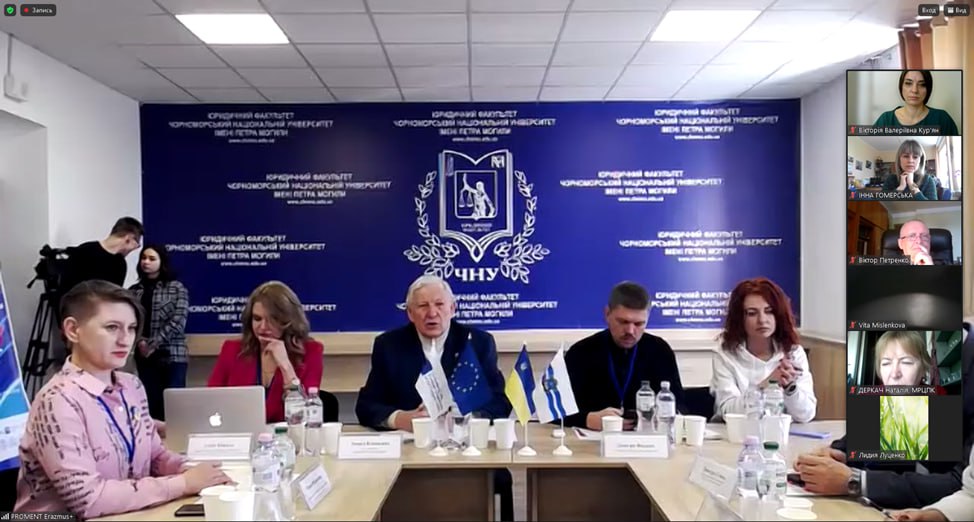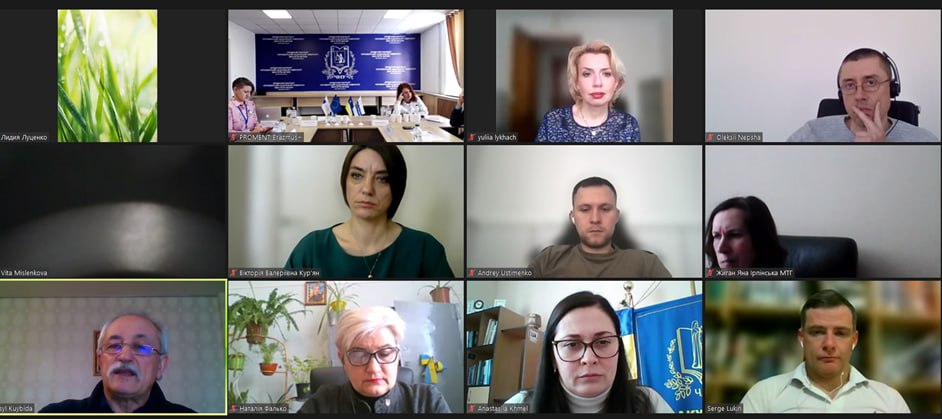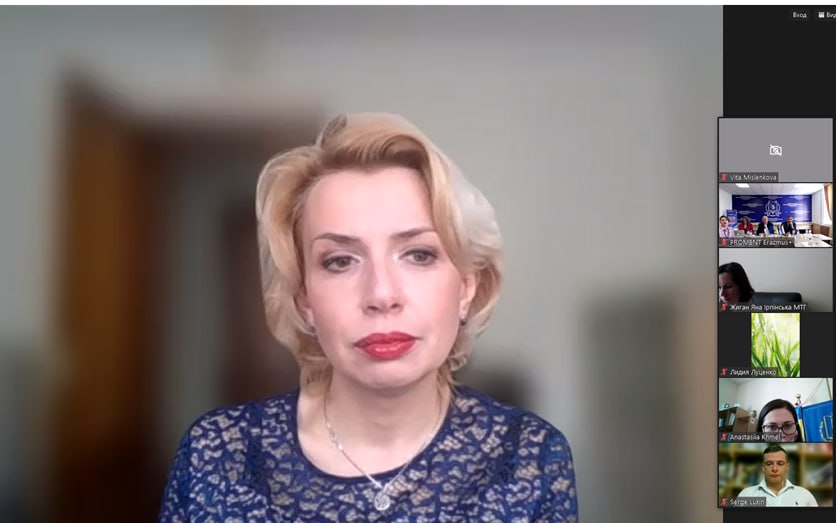
On 28 February, Yuliia Lykhach, Head of the High School, took part in a roundtable discussion on “Professional Mentoring for Public Sector Effectiveness in the Context of War and Post-War Reconstruction” held at Petro Mohyla Black Sea National University.
The participants of the event discussed a topical issue – the professional development of future employees of state authorities and local self-government bodies in the context of war and post-war reconstruction of our country.
In her speech, Yuliia Lykhach elaborated on the professional development of public servants on de-occupation and reintegration of the temporarily occupied territory and management of the de-occupied territory, which is provided by the High School. By the way, this is the only institution of postgraduate education, professional development and advanced training of public servants in the main aspects of implementation of all policy areas.
“The war has become a test of strength for Ukraine: to resist the enemy, fulfil social obligations to society, remain a reliable international partner and motivation for change. “The national public administration system has demonstrated fundamental resilience in extremely difficult conditions and has been able to adapt to wartime conditions,” said the Head of the School. “Public servants have faced new challenges, to which they have not only adapted, but are also ready for the post-war reconstruction of the country and the formation of a powerful reserve to fulfil the tasks and functions of the state in the de-occupied territories.
The head of the institution noted that in pursuance of the action plan for the implementation of the Strategy for the De-occupation and Reintegration of the Temporarily Occupied Territory, approved by the Cabinet of Ministers of Ukraine on 29 September 2021, No. 1171-p, the High School has developed 15 advanced training programmes on the de-occupation and reintegration of the temporarily occupied territory and the management of the de-occupied territory.
A working group was initiated to develop relevant educational programmes on the exercise of powers under martial law by public servants and ASCs; social protection and security of access to education services, overcoming the environmental consequences of war, cybersecurity, tactical medicine, psycho-emotional support, prevention and counteraction to violence, etc.
In 2023, 534 people were trained under 11 educational programmes (441 public servants, 93 local government officials, including 81 candidates for the personnel reserve of public servants to work in the de-occupied territories of Ukraine) as part of the “Management of the De-occupied Territories” educational project.
In 2024, it is planned to upgrade the skills of 394 people and develop an online course for public servants on “Governance in the de-occupied territories”.
It should be added that the High School is analysing the questionnaires of the reserve of employees of state bodies to work in the de-occupied territories of Ukraine. As of 23 February 2024, 2394 application forms were registered, of which 1362 were submitted by men and 1032 by women.
Civil servants, local government officials, military personnel, members of city and village councils, journalists and TV journalists, public figures, and volunteers expressed their desire to join the reserve.
From the applications submitted to the register:
39 candidates have academic degrees;
95 candidates have a scientific degree;
1891 candidates have a total work experience of more than 10 years;
1401 candidates have 5 or more years of managerial experience;
144 candidates have experience in political activity (42 current MPs);
932 applications were submitted by persons liable for military service;
In the reserve of employees of state bodies for work in the de-occupied territories of Ukraine, 272 active civil servants are registered, 257 people have experience in the civil service, 132 people are currently working in local self-government bodies, 167 people have experience in local self-government bodies.
In terms of regional focus, the largest percentage of candidates (77.2%) would like to work in the Autonomous Republic of Crimea and Sevastopol (1848 candidates). This is followed by Donetsk (26.1%), Zaporizhzhia (22.3%) and Kherson (22.3%) oblasts.
The professional development of future EMB and local self-government employees is one of the priorities for the post-war reconstruction of Ukraine. Therefore, it is important for everyone to consolidate efforts to train and retrain staff, engage practitioners in teaching, facilitate graduate employment, introduce new working methods and increase transparency.

